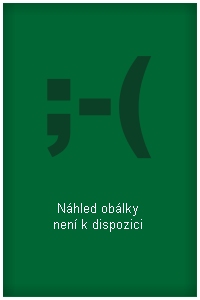
Kód: 33276895
Controlling Corruption
Autor Rothstein, Bo (University of Gothenburg, University of Gothenburg, August Roehss Chair in Political Science)
This book presents a radically new approach of how societies can bring corruption under control. Since the late 1990s, the detrimental effects of corruption to human well-being have become well established in research. This has ... celý popis
- Jazyk:
 Angličtina
Angličtina - Vazba: Pevná
- Počet stran: 232
Nakladatelství: Oxford University Press, 2021
- Více informací o knize

3662 Kč

Skladem u dodavatele v malém množství
Odesíláme za 13-18 dnů
Potřebujete více kusů?Máte-li zájem o více kusů, prověřte, prosím, nejprve dostupnost titulu na naši zákaznické podpoře.
Přidat mezi přání
Mohlo by se vám také líbit
-

The Book of Bill
514 Kč -

Gravity Falls Journal 3
435 Kč -

Berserk Deluxe Volume 1
1033 Kč -

Pumpkin Spice Cafe
258 Kč -

Berserk Deluxe Volume 2
1033 Kč -

White Nights
86 Kč -

48 Laws Of Power
372 Kč -

It ends with us
195 Kč -

Atomic Habits
427 Kč -

A Little Life
259 Kč -

Berserk Deluxe Volume 3
1138 Kč -

The 48 Laws of Power
523 Kč -

Jujutsu Kaisen, Vol. 23
267 Kč -

Surrounded by Idiots
256 Kč -

Berserk Deluxe Volume 4
1165 Kč -

English File Fourth Edition Intermediate (Czech Edition)
611 Kč -

Gilmore Girls: The Official Advent Calendar
723 Kč -

Iron Flame
353 Kč -

The Official Stardew Valley Cookbook
561 Kč -

Chainsaw Man, Vol. 16
267 Kč -

Nexus: A Brief History of Information Networks from the Stone Age to AI
367 Kč
Darujte tuto knihu ještě dnes
- Objednejte knihu a zvolte Zaslat jako dárek.
- Obratem obdržíte darovací poukaz na knihu, který můžete ihned předat obdarovanému.
- Knihu zašleme na adresu obdarovaného, o nic se nestaráte.
Více informací o knize Controlling Corruption
Nákupem získáte 366 bodů
 Anotace knihy
Anotace knihy
This book presents a radically new approach of how societies can bring corruption under control. Since the late 1990s, the detrimental effects of corruption to human well-being have become well established in research. This has resulted in a stark increase in anti-corruption programs launched by international organizations such as the World Bank, the African Union, the EU, as well as many national development organizations. Despite these efforts, evaluations of the effects of these anti-corruption programs have been disappointing. As it can be measured, it is difficult to find substantial effects from such anti-corruption programs. The argument in this book is that this huge policy failure can be explained by three factors. Firstly, it argues that the corruption problem has been poorly conceptualized since what should count as the opposite of corruption has been left out. Secondly, the problem has been located in the wrong social spaces. It is neither a cultural nor a legal problem. Instead, it is for the most part located in what organization theory defines as the 'standard operating procedures' in social organizations. Thirdly, the general theory that has dominated anti-corruption efforts — the principal-agent theory — is based on serious misspecification of the basic nature of the problem. The book presents a reconceptualization of corruption and a new theory — drawing on the tradition of the social contract - to explain it and motivate policies of how to get corruption under control. Several empirical cases serve to underpin this new theory ranging from the historical organization of religious practices to specific social policies, universal education, gender equality, and auditing. Combined, these amount to a strategic theory known as 'the indirect approach'.
 Parametry knihy
Parametry knihy
3662 Kč
- Plný název: Controlling Corruption
- Podnázev: The Social Contract Approach
- Autor: Rothstein, Bo (University of Gothenburg, University of Gothenburg, August Roehss Chair in Political Science)
- Jazyk:
 Angličtina
Angličtina - Vazba: Pevná
- Počet stran: 232
- EAN: 9780192894908
- ISBN: 0192894900
- ID: 33276895
- Nakladatelství: Oxford University Press
- Hmotnost: 476 g
- Rozměry: 234 × 156 × 20 mm
- Datum vydání: 18. March 2021
Osobní odběr Praha, Brno a 12903 dalších
Copyright ©2008-24 nejlevnejsi-knihy.cz Všechna práva vyhrazenaSoukromíCookies


 Vrácení do měsíce
Vrácení do měsíce 571 999 099 (8-15.30h)
571 999 099 (8-15.30h)